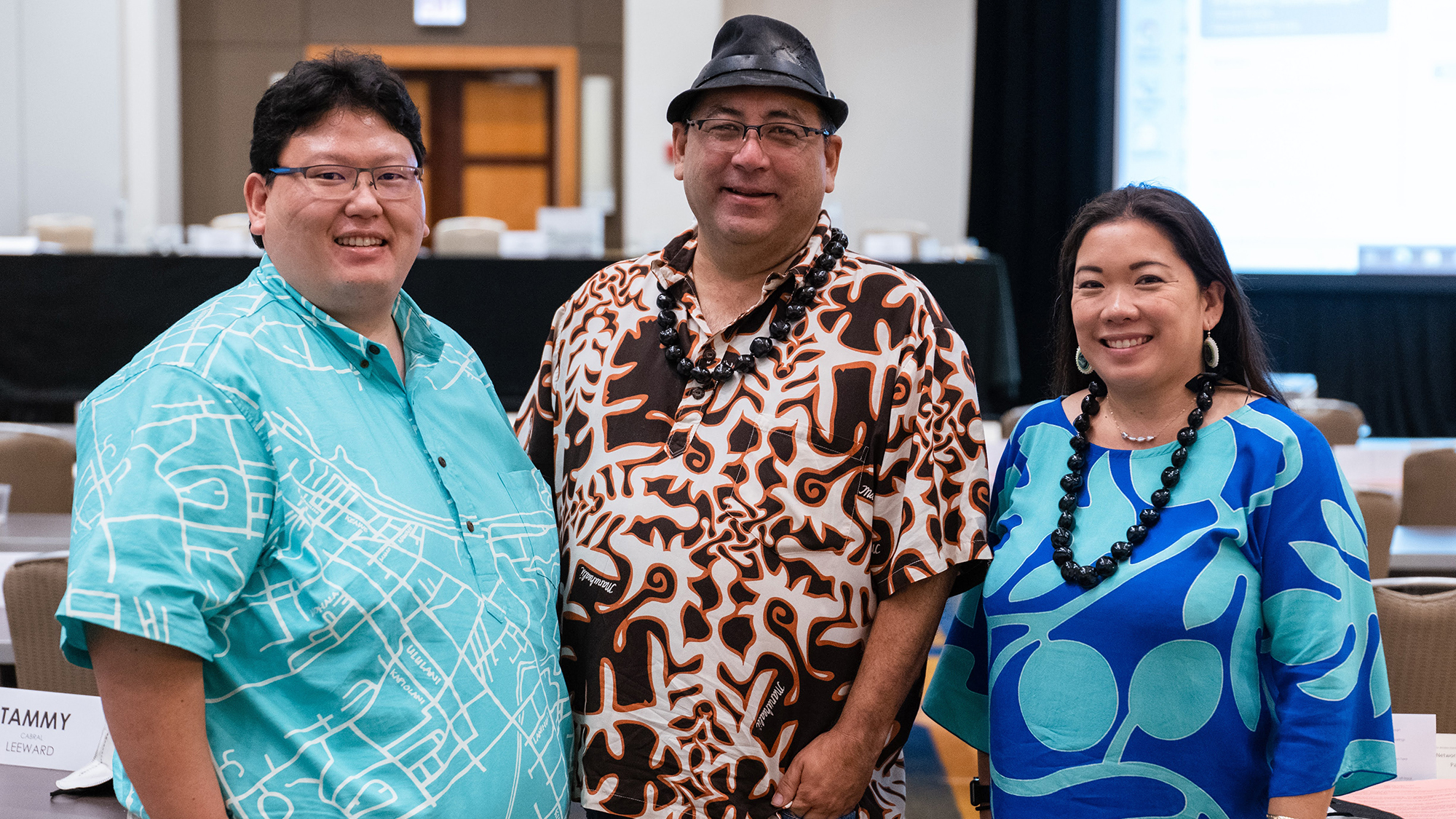3 HSTA members on task force behind statement approved by 2022 NEA RA
Posted: July 6, 2022
The 2022 National Education Association Representative Assembly (NEA RA) approved this week a policy statement on safe, just, and equitable schools.
The policy focuses on a variety of actions to ensure that educators have the resources, training, and support they need to help all students succeed, guided by the following principles:
- Adopt a restorative justice philosophy to create a school climate that rejects the criminalization and policing of students.
- Provide training and support for culturally competent instruction.
- Develop and implement plans to end disparities in disciplinary and behavioral practices.
- Create a community-centered school environment to foster safe, positive environments and engage all members of the public school.
HSTA NEA Director Aaron Kubo, an 8th-grade social studies teacher at Hilo Intermediate, said policy statements are powerful because they not only reflect the opinion of the country’s largest union, they also establish guidance and support for the association’s three million members.
“It’s not up to the NEA to decide how an affiliate will follow it, because they’re not there to tell you how to do it, but they offer support and the means with which to do it, and if affiliates need help, they’re here to actually help them, whether it’s through funding or through trainers or through structure as well as anything else they may need,” Kubo explained.
Kubo, along with fellow Hawaii State Teachers Association members Jodi Kunimitsu and Edwin Kagawa and 31 other NEA members from across the country representing different areas and ethnicities, served on a special task force to develop the policy statement as directed by the 2021 NEA RA. They spent the better part of a year meeting virtually and in person to identify the criteria for safe, just, and equitable schools, including exploring the role of law enforcement in education and compiling data.
“We brainstormed a lot about what we thought a safe, just, and equitable school looks like — what components of a school would pertain to that?” said Kunimitsu, who chairs the NEA Asian and Pacific Islander Caucus (APIC). “We talked about inclusivity and people feeling safe, obviously, but like what kinds of practices are in place that make students feel safe at school, and what kinds of practices make them feel unsafe?”
Kagawa, APIC vice chair and president of HSTA’s Hilo Chapter, said, “I think the initial gut reaction for (the 2021 NBI that initiated the task force) was just getting guns out of schools. However, as we discussed and shared ideas from different areas of the country, different situations, that’s where we organically developed a cultural responsiveness, looking at programs and services that were provided and then asking, what are alternatives? What are things that NEA can fight for? What are things that we can address at our local, state, and county levels to adjust to how to support schools?”
Kubo says the policy’s culturally competent instruction component urges educators to understand their students and where they come from.
“You need to know your students — not just know their name, but know their culture, their language, how they respond, how they think, and how they interact with their community. The policy allows the NEA to support professional development training in this arena,” he said. “Just adding this one part is a huge, huge gain.”
Kunimitsu, a Maui High math teacher who also chairs HSTA’s Human and Civil Rights Committee, added, “It really isn’t about individual people, but it’s the environment that is created by the practice of policing students.
“If a student is behaving a certain way, then how do we approach that student? Do we just suspend them or do we counsel them? What we know is that students do much better if they feel supported and not just disciplined, and so that was a really huge part of the work that we did,” she said.
Kagawa, HSTA Hilo Chapter president, says he’s eager to see how Hawaii and his chapter can benefit from the new policy.
“We can work with our legislators, the Hawaii State Department of Education, the Board of Education, and the larger community to identify or create programs and services that are unique to Hawaii and our kids,” he said.
About NEA RA
Every summer, thousands of educators from around the country meet at the National Education Association Representative Assembly to debate and vote on vital issues that impact public education and set NEA policy and activities for the year ahead.
This year, NEA RA took place in Chicago with approximately 6,000 educators from every state in attendance, both in person and virtually. Click here for the latest updates for this year’s RA.
The NEA is the largest union in the country, and the RA is the world’s largest democratic deliberative assembly.

